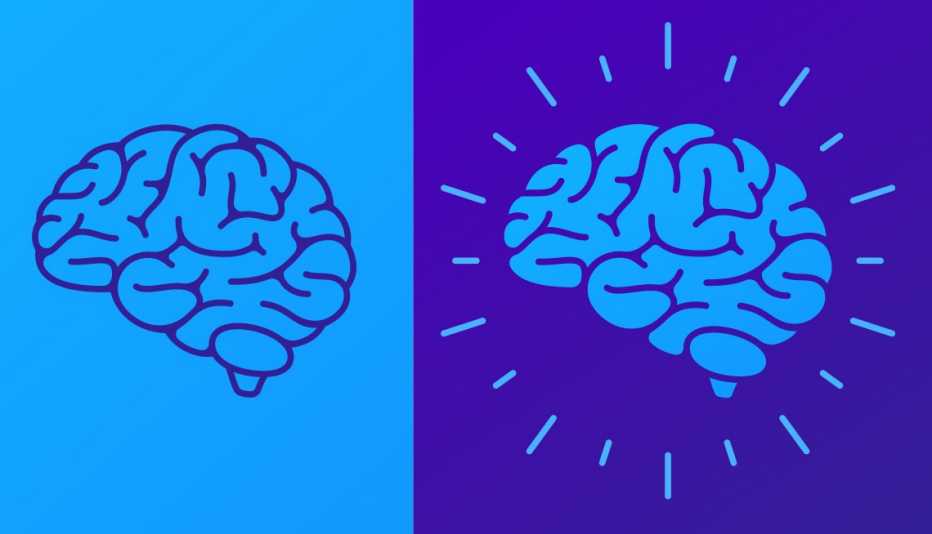AARP Hearing Center


Most people know that carrying around extra weight can be harmful for the heart. But did you know it can affect your brain as well?
Everybody’s brain changes as they age, according to the National Institute on Aging. Memory slipups can happen more frequently, and multitasking may become more difficult. Excess weight, particularly the kind stored in your belly, just adds fuel to the fire, experts say.
“Belly fat can accelerate normal brain aging because it produces hormones and chemicals that lead to inflammation and insulin resistance,” says Howard Fillit, M.D., a professor of geriatrics, medicine and neuroscience at Mount Sinai School of Medicine in New York City. And both inflammation and insulin resistance are well-established risk factors for Alzheimer’s disease and other dementias, he adds.
In recent research, excess weight has been shown to:
- Reduce blood flow to the brain. In a 2020 study involving brain scans of more than 17,000 people, researchers found that as weight went up, blood flow in the brain went down. Slower blood flow in the brain has been linked to cognitive decline and dementia.
- Shrink the brain. Using MRIs, researchers from the University of Pittsburgh found that people who were overweight had 4 percent less brain volume, and their brains looked eight years older on average than those of people who were of normal weight. People with obesity had 8 percent less brain volume and brains that appeared 16 years older, according to the study published in Human Brain Mapping. Other data link a larger waist-to-hip ratio — a good measure of harmful abdominal fat — to a greater decrease in total brain volume.
- Reduce cognitive abilities. Research points to a link between extra weight and everyday thinking and reasoning skills, collectively known as cognitive function. A study published in 2022 in the journal JAMA Network Open found that excess fat, and especially belly fat, was associated with lower cognitive scores. Similarly, a study published in the journal Neuropsychology found that an elevated body mass index (BMI), a ratio of weight to height, is directly associated with decreased attention, processing speed (how fast your brain works) and fine motor speed.
How to help protect your brain
While accumulating research suggests that being overweight or having obesity can be a risk factor for dementia, experts say you can lower that risk.
Drop a few pounds.
Try to lose unhealthy weight before it has had time to wreak havoc on your brain, experts say. Weight loss doesn’t need to be dramatic to have a big impact. If you are overweight, losing 5 to 10 percent of your total body weight can improve measures of blood pressure, blood sugar and inflammation — all of which have been tied to brain health.
Both diet and exercise are usually needed to break up with your BMI, but there are a few other tools. Weight loss medications can also help some people. A new class of drugs — known as GLP-1 receptor agonists, like Wegovy and Ozempic (semaglutide) — can regulate appetite and food intake, and Fillit says they may have a positive effect on brain function, too.
And weight loss after bariatric surgery has been shown to boost brain health. According to a 2022 study, people undergoing the surgery at midlife saw a decrease of almost three years of brain age one year after the procedure, and a decrease of 5.6 years in the second year.





































































More on Health
5 Reasons You Should Lower Your Blood Sugar
If you have prediabetes, the sooner you make this a priority, the better the payoff and the longer you could live
How to Nourish Your Brain
Use the S.H.A.R.P. method to kick-start a healthy way of eating